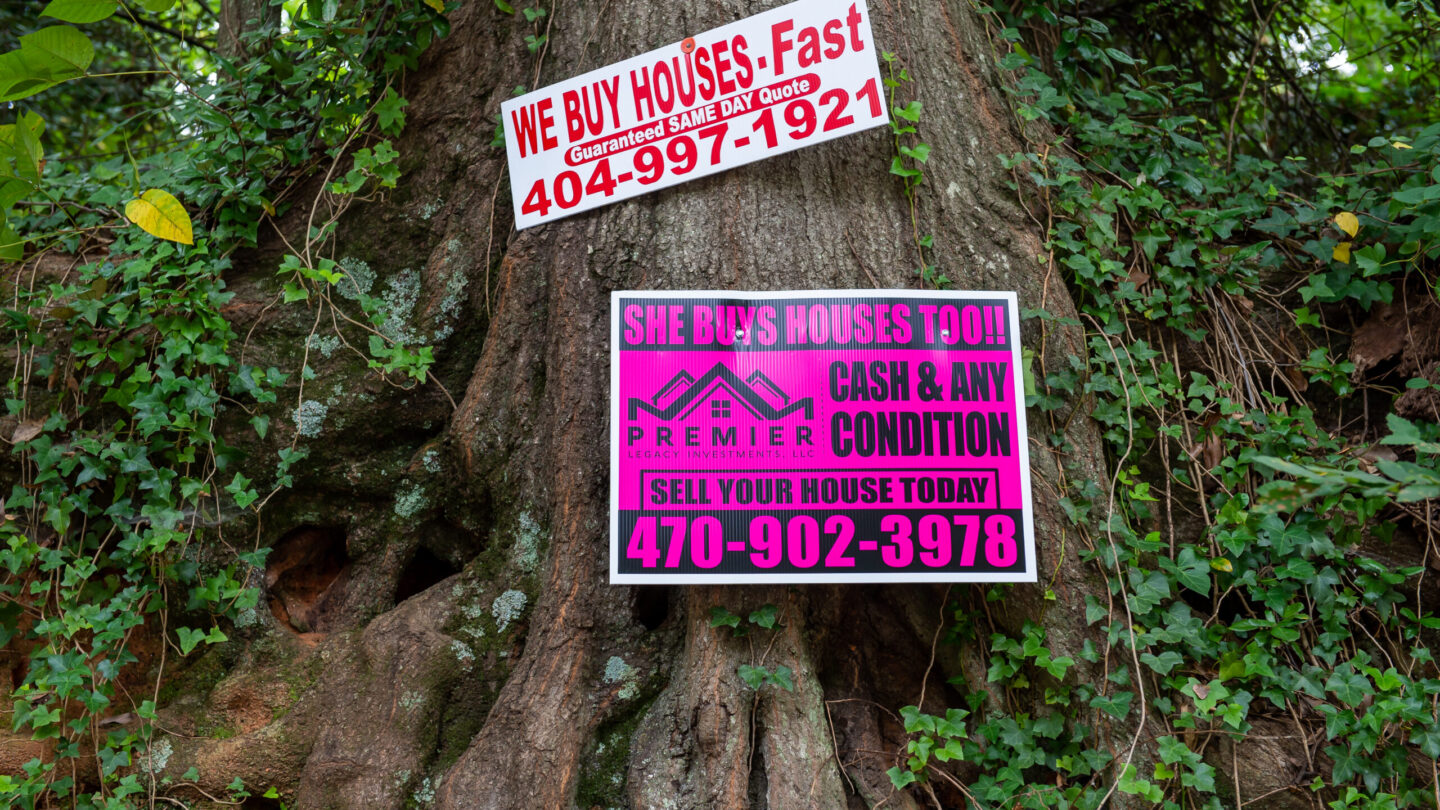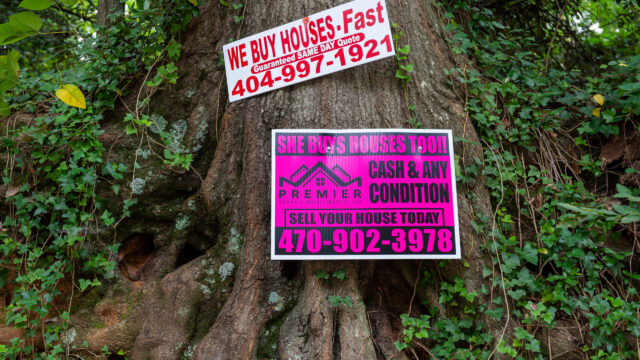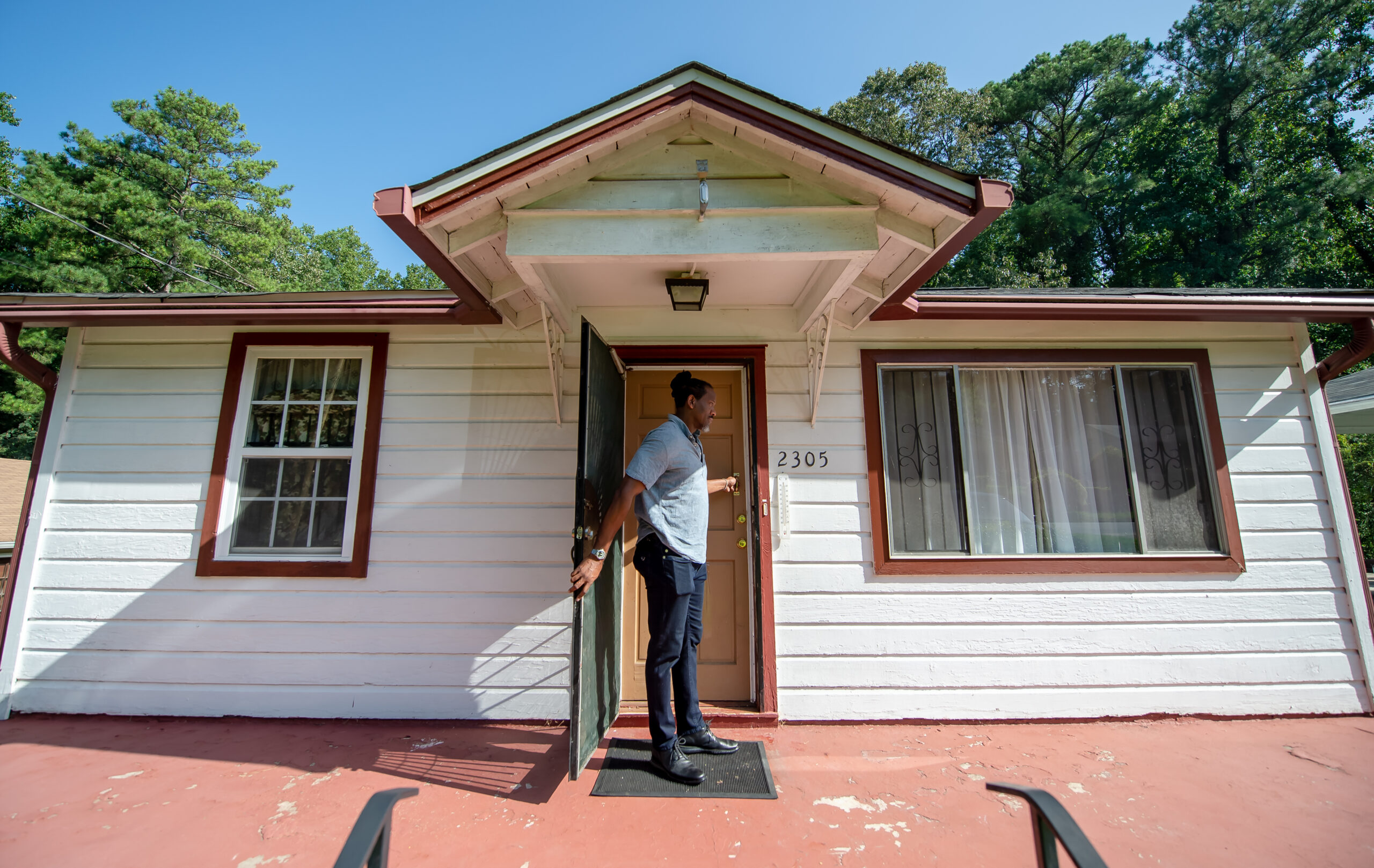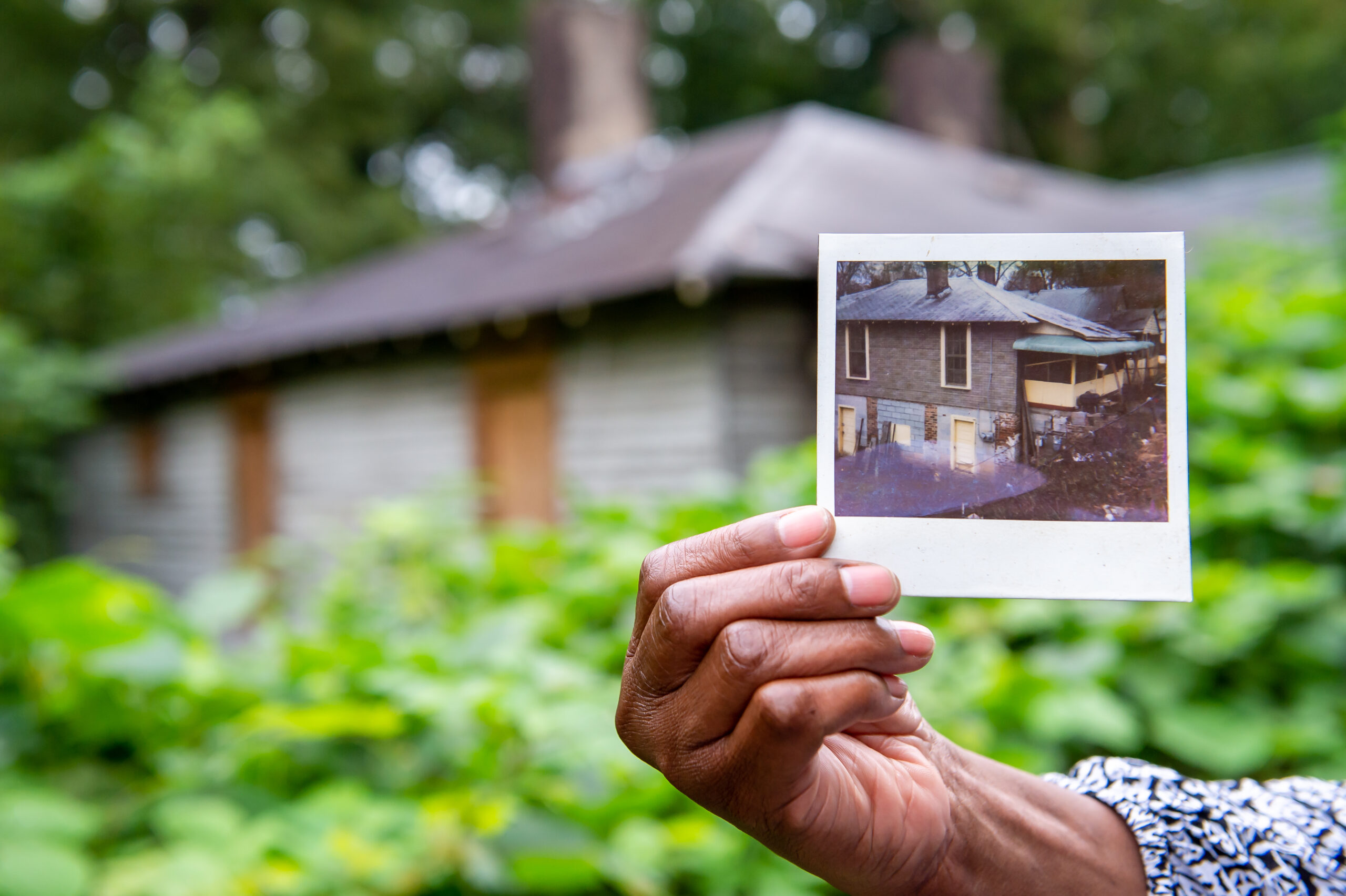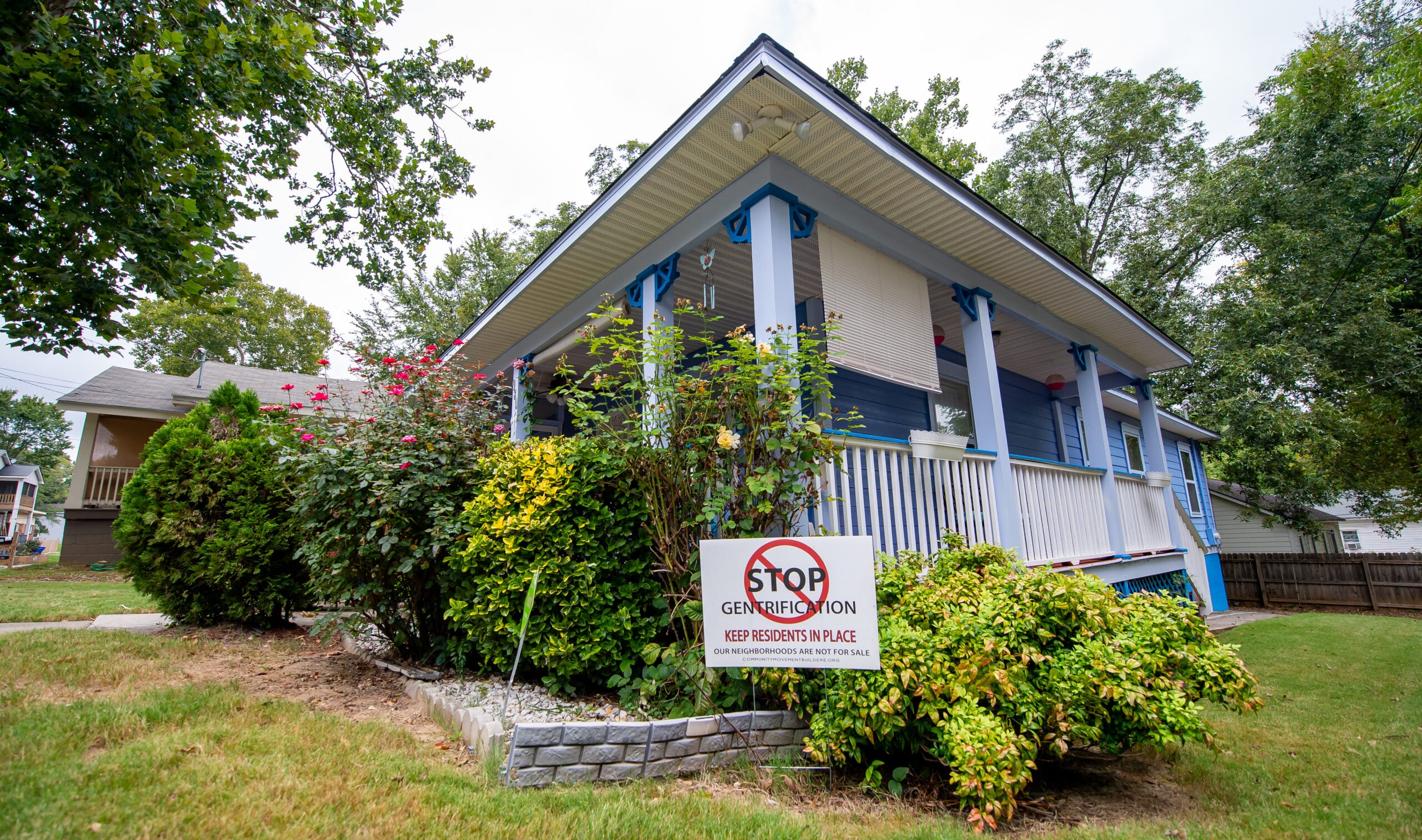Sarah Mae Rogers said she built her house from the foundation up.
She lives in a blue, single-story home at the southern edge of Grant Park. She purchased it through a nonprofit called Charis in the 1980s. As part of the deal, her family took part in construction.
“Every Saturday, me and my son had to come and help on the house until we got this house where it’s at now,” Rogers said.
Rogers is proud of this. She’s about 70 years old, with a past that otherwise weighs on her. She grew up around Athens, and she remembers the racism clearly. She thinks back to one time when a group of white men drove by and threw bottles at her.
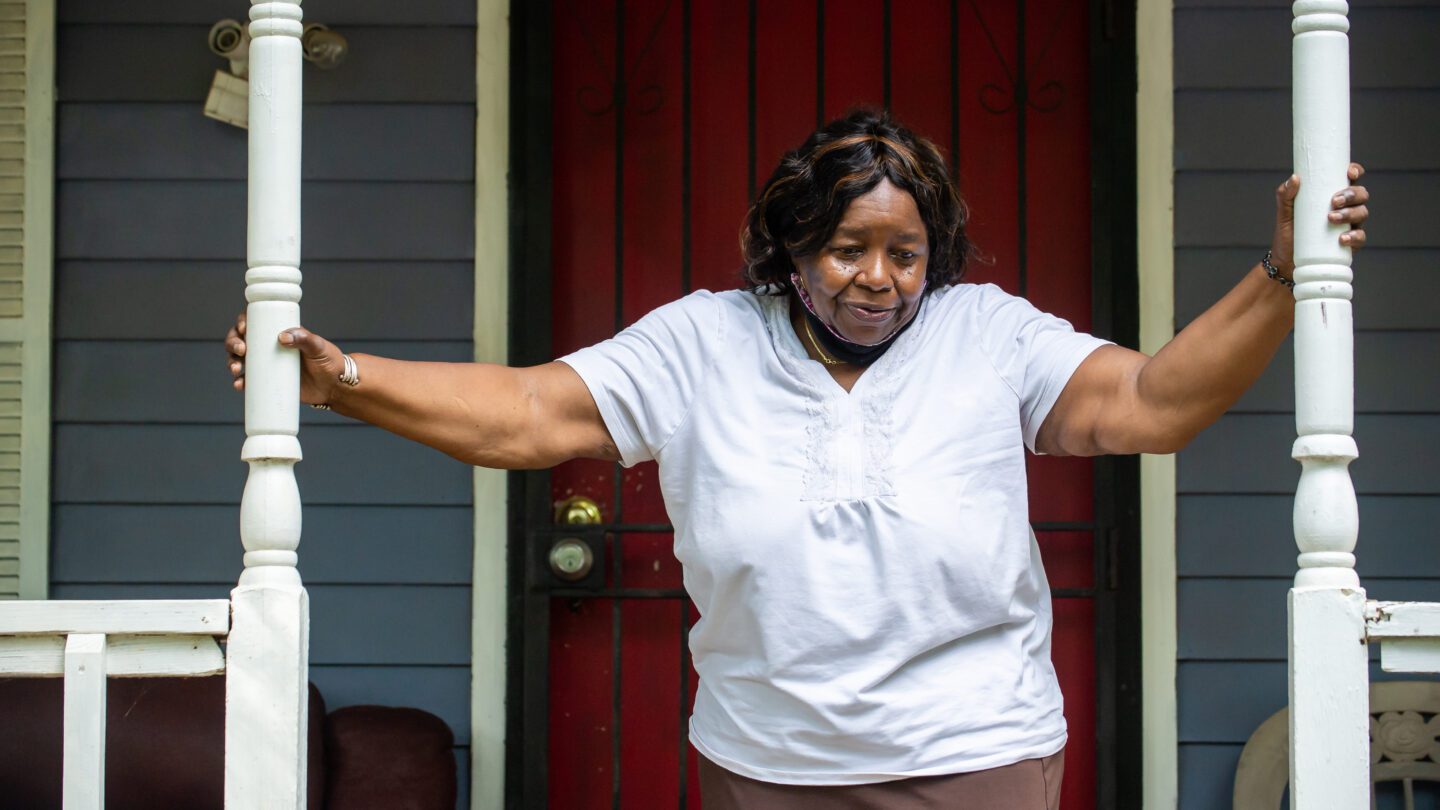
“They hollered that word that I can’t stand to hear nobody say,” Rogers said. “So this gave me the notion that, ‘Hey, we ain’t gonna go nowhere.’”
She felt like Black people couldn’t achieve anything, so she saw no use in school. She regretted that later.
She worked low-paying jobs, until she eventually retired from a warehouse.
So this house, it’s what she has.
Rogers has owned it for 30 years and paid off the mortgage. Then, one day, she nearly lost it.
Her story demonstrates how homeownership, often considered a central part of the American dream, can turn residents in Atlanta’s gentrifying Black neighborhoods into targets.
As property values increase along the curve of the BeltLine, in South and West Atlanta, they face increasing pressures to sell. And an investigation now reveals the harmful results that can have for them and their families.
A WABE and APM Reports analysis shows sellers in these neighborhoods accepted prices that were so low they were less than half the estimated fair market value, according to Zillow’s Zestimate. Homes in these neighborhoods had below-value sales at a higher rate than the rest of the city.
The findings were especially stark in areas where development is just beginning to take hold and when looking only at owner-occupied homes.
In four neighborhoods — Pittsburgh, Venetian Hills, Grove Park and Sylvan Hills — more than 1 in 4 homes sold by someone living in them sold for a price that wasn’t even half the Zestimate. These neighborhoods were also among those with the highest rates of homes with occupant sales prices that were well below their value when compared with the Fulton County Tax Assessor’s estimate of fair market value.
In more than a dozen other neighborhoods, largely on the northern side of Atlanta, there were no sales by owner-occupants that were similarly low-valued.
Interviews with homeowners uncovered several factors that led them to sell for those prices, from calls, texts and fliers from investors asking to buy their properties to the stress that came with increased code-enforcement complaints.
Sometimes, in cases like Rogers’, they never meant to sell at all.
Rogers said she had been concerned about money. Her home is a block from the Southside BeltLine. She didn’t know much about the trail at the time. But she knew what it did to her property taxes. They doubled from one year to the next.
She said that scared her. She had water and sewer bills on top of the taxes, repairs on her house she thought she needed to make. So, to cover all of that, she decided to borrow money.
Rogers took out something called a title loan, which she learned about on TV. These companies give you money and hold onto your car’s title until you pay it back. But the amount you owe grows quickly.
Soon Rogers found the loan just made her money problems worse. It got to the point where she couldn’t see a way out.
“I felt like I was just down in the hole,” Rogers said. “That young girl, she fooled me.”
That young girl is a woman named Cathy Harris. She’s actually about 50 years old. The two met at a nearby gas station. Rogers said she was crying in her car when Harris approached her. According to Rogers, Harris said she could help with the financial problems.
“Her being Black, I thought maybe she can help me,” Rogers said. “I don’t know, I believed in her. I trusted her, and that was wrong.”
Rogers said Harris eventually came to her house. Harris promised money to cover the debt. She just had to sign papers. The problem was, Rogers didn’t understand them. In court documents, Harris said Rogers did know what she was agreeing to.
“We’re really seeing the dirty, evil underbelly of the real estate market.”
Karen Brown, director of the Home Defense Program at Atlanta Legal Aid
Either way, the result was Rogers signed the papers — she said Harris encouraged her along. Rogers said she only figured out later what they were: a contract to sell her home.
Karen Brown, director of the Home Defense Program at Atlanta Legal Aid, said cases of predatory investors have become increasingly common in the last couple of years.
“We’re really seeing the dirty, evil underbelly of the real estate market,” she said.
Brown calls these cases “equity theft” because she said investors are stealing the possible profit the homeowners could make when they sell. And while homeowners all over Atlanta have equity, Brown said the cases she’s handled are only in specific areas: gentrifying, minority neighborhoods.
“So as those homeowners and those neighborhoods have property values these days that are going up, they’re targeted because they’ve got equity to steal,” she said.
Atlanta Legal Aid has handled a dozen or so cases of predatory investors tricking homeowners into signing away their equity. Brown thinks there are many more that her office doesn’t know about.
The analysis from WABE and APM of four years of Fulton County real estate records between 2015 and 2018 doesn’t speak to the stories behind the sales and whether they involve predatory investors. But the findings show how many homeowners in fast-appreciating, longtime Black neighborhoods could be missing out on rising values because they’re selling their homes for artificially low amounts.
“That’s a huge concern because one of the benefits of homeownership is being stripped away,” said Dan Immergluck, a professor of urban studies at Georgia State University, who reviewed the findings.
Immergluck said throughout history Black people haven’t benefited as much from homeownership, going back to when they first could buy homes in many of these neighborhoods around Atlanta. Banks either denied them mortgages or marketed them terms set up to fail.
Still, Immergluck said, in the U.S., homeownership remains the key way for working class families to build wealth.
“And this equity stripping basically destabilizes that process,” he said.
It’s like as homeowners approach the finish line, predatory investors take their prize.
And the homeowners who become victims of equity theft typically don’t have other savings, said Brown. They’re what she describes as “cash poor, property rich.”
“The one thing that those families may have that’s a value is the home,” she said. “And if it’s being stolen from them, then that family, they’re walking away with nothing.”
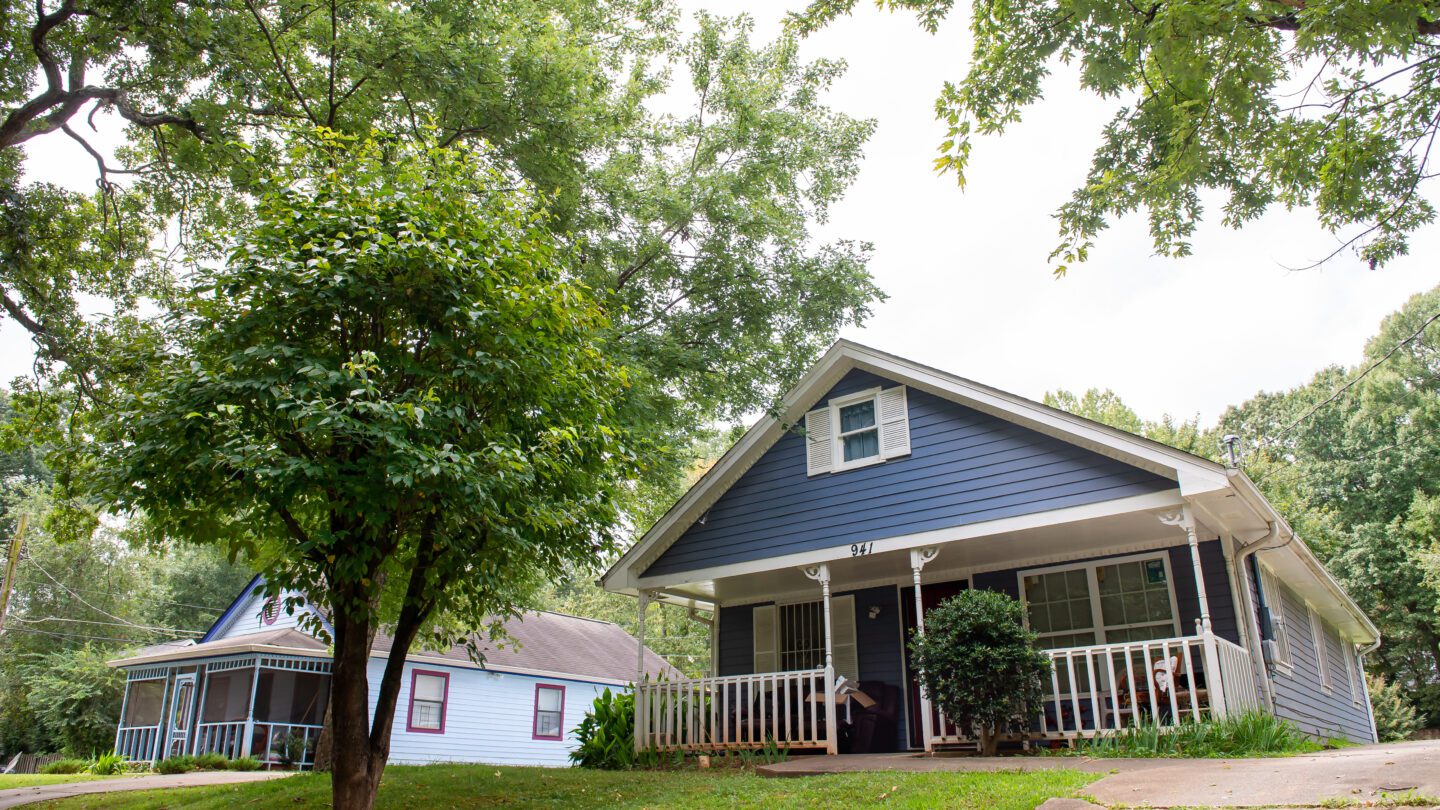
Ultimately, Rogers didn’t have to follow through with the sale of her home. She had signed a contract pledging to sell the house for $150,000 even though Zillow at the time estimated it was worth twice that. But Atlanta Legal Aid challenged the sale in court.
The woman who gave her the contract, Cathy Harris, didn’t respond to a letter requesting comment. She could not be contacted through the attorney who represented her. In court testimony, she said she was buying the house for another investor named John Mangham. He did not respond by phone or by email.
In the two years that have passed, Rogers has enrolled in a program for seniors to lower her property taxes. She’s now calling the legal aid attorneys before signing anything.
At the end of a heavy conversation, she discusses her plans for her single-story, blue house, and this lightens her mood.
“When I got this home, me and my son, it was our dream,” she said.
She said this home, and all of the value it’s accumulated over the years, will be for him, the person who joined her in putting the nails in the walls.
“It makes me feel good to know that — even though I don’t know what he’ll do with it — from where we started from, it belongs to him,” Rogers said. “If I was to die right today, it belongs to him.”
She said he can sell it. But that will be his choice.
This story was possible with support from America Amplified, a public media initiative, and the Corporation for Public Broadcasting. It was produced in collaboration with APM Reports, the investigative reporting unit of American Public Media.
